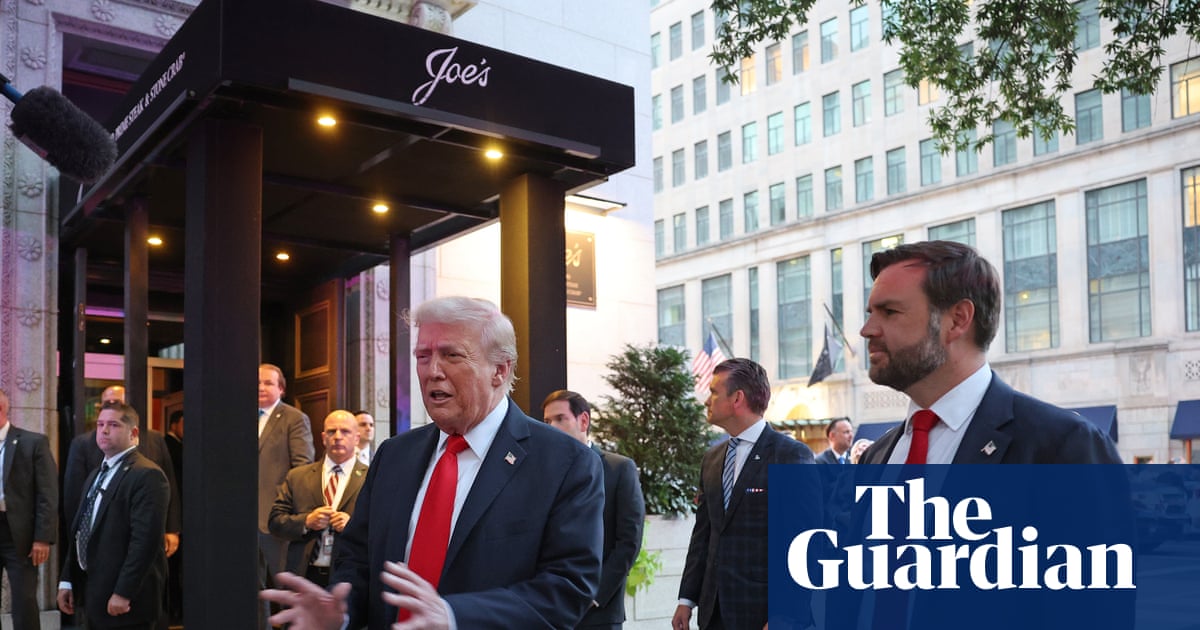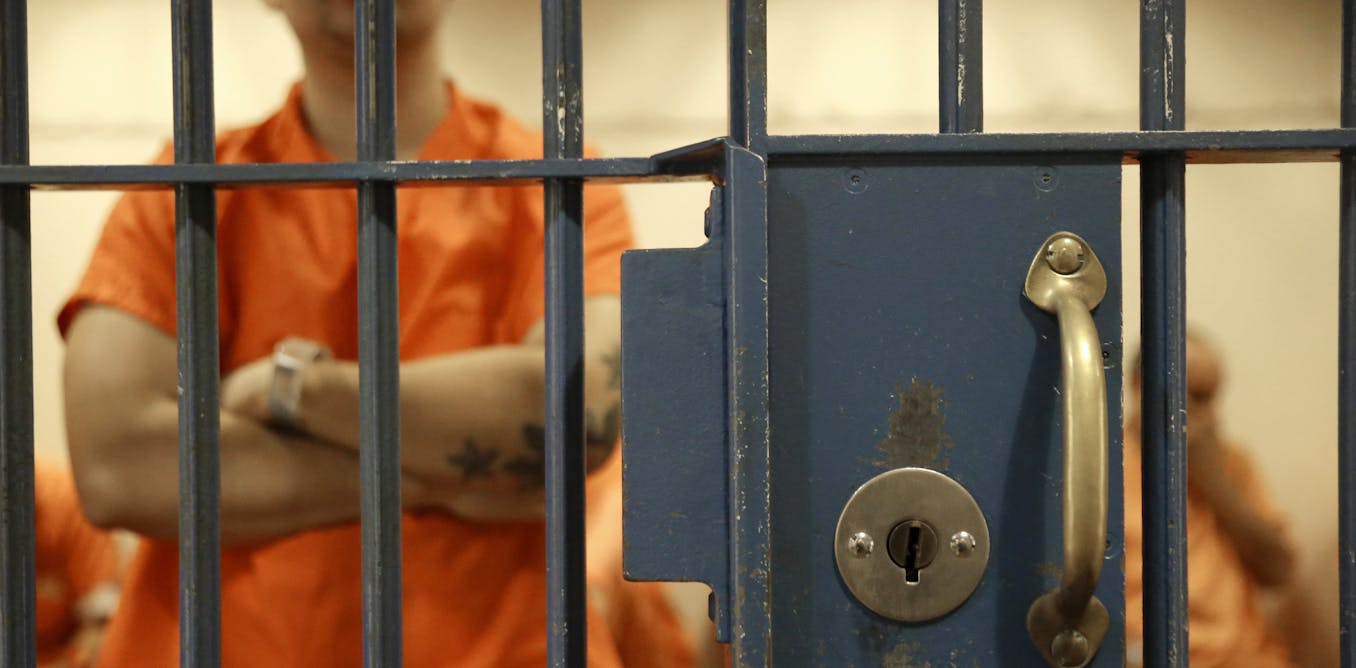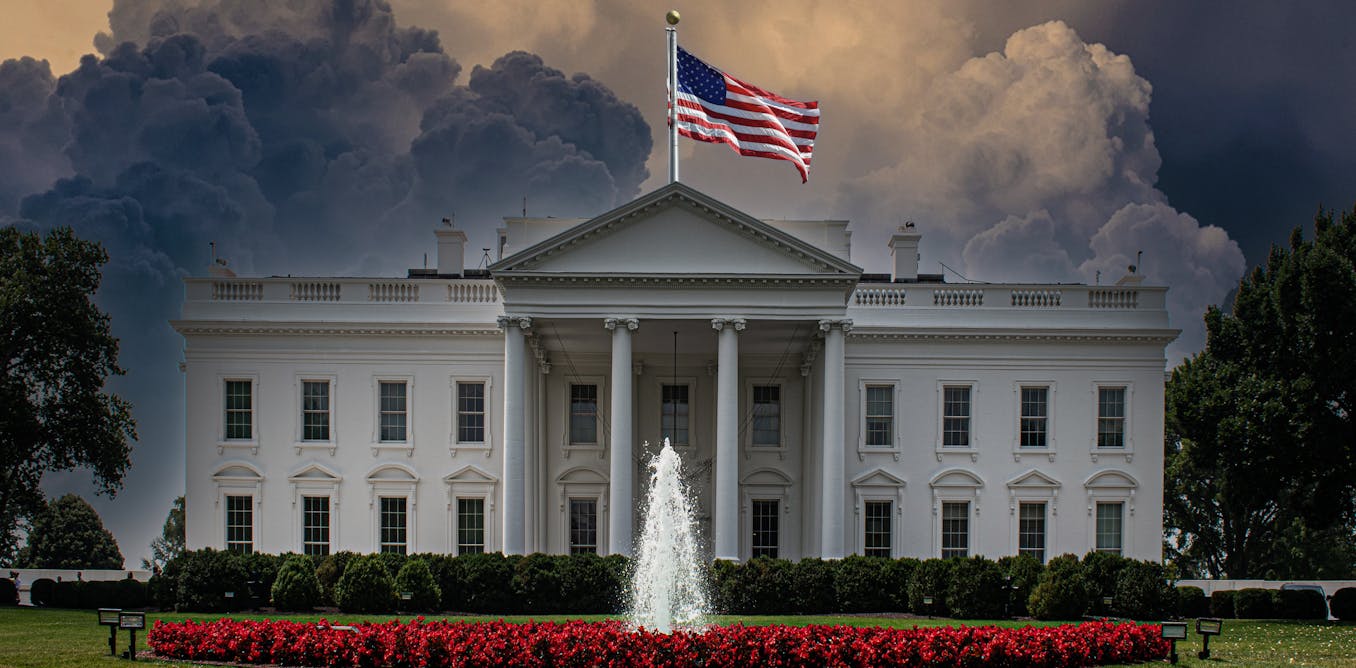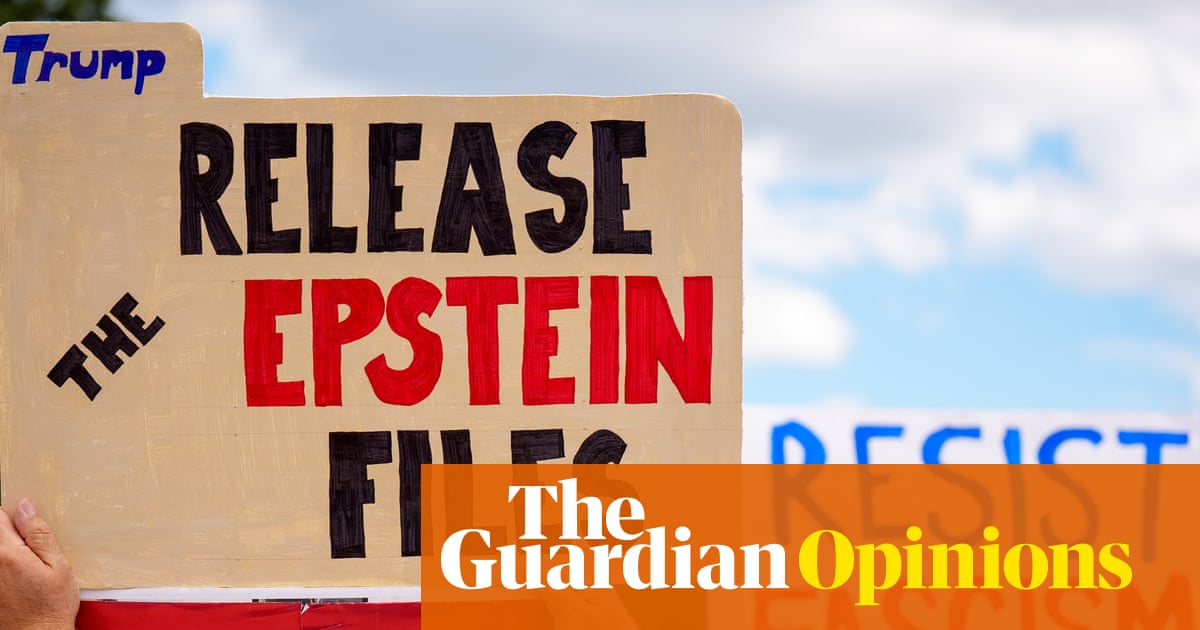At least one of the Korean workers swept up in a massive immigration raid on a Hyundai Motor factory site in Georgia last week was living and working legally in the US, according to an internal federal government document obtained by the Guardian.
Officials then “mandated” that he agree to be removed from the US despite not having violated his visa.
The document shows that immigration officials are aware that someone with a valid visa was among the people arrested during the raid at the Hyundai factory and taken to Immigration and Customs Enforcement (Ice) detention for removal proceedings, where the people arrested remained on Tuesday before expected deportation flights back to South Korea.
The document in question reports on the man’s case and was leaked exclusively to the Guardian. It was written by an Ice agent. The Guardian is redacting the identity of the man in question, who arrived in the US in June, because it has not been possible to reach him directly and it is unclear whether he has any legal representation.
The document says that immigration agents from Atlanta “determined that [redacted] entered into the United States in [redacted], with a valid B1/B2 visa and [redacted] was employed at HL-GA Battery Company LLC as a contractor from the South Korean company SFA. From statements made and queries in law enforcement databases, [redacted] has not violated his visa; however, the Atlanta Field Office Director has mandated [redacted] be presented as a Voluntary Departure. [Redacted] has accepted voluntary departure despite not violating his B1/B2 visa requirements.”
The internal file describes “an actual crime”, according to Charles Kuck, an immigration attorney based in Georgia – but with the crime allegedly being committed by the government, not the immigrant in question. Kuck, who is representing a number of people arrested during last week’s raid, said it is illegal to detain a valid visa holder in this way.
“This is outrageous,” Kuck said.
The document contradicts claims by the agency that all 475 people arrested during the raid were working illegally or violating their visas. Attorneys scrambling in recent days to provide representation to the men detained had already claimed that immigrants with a valid working status were swept up alongside the people allegedly working unlawfully, and placed in removal proceedings. That view was backed up by an agency official who spoke on condition of anonymity to discuss sensitive government matters.
It is not yet clear whether other people with valid visas were detained in the raid, nor how many were actually alleged to be working illegally at the factory.
Approximately 300 people arrested could be put on flights back to South Korea as early as Wednesday, according to one source familiar with events who requested anonymity to speak about what is going on behind the scenes. Non-Koreans arrested during the operation are expected to remain in Ice detention.
Last Thursday, Ice led a raid at the Hyundai battery factory under construction in Ellabell, near Savannah, Georgia, and arrested nearly 500 people, the majority of whom were from South Korea, part of a $12.6bn investment program in Georgia by the company. Construction had to be halted on the plant that is designed to supply batteries for electric vehicles.
A spokesperson for the Department of Homeland Security (DHS), the federal parent agency of Ice, said in a statement to the Guardian that: “This individual admitted to unauthorized work on a B1/B2 visa. He was offered voluntary departure and accepted it,” despite this being the opposite of what the leaked document says. When pressed for further clarification, DHS reiterated its first statement. Ice did not respond to a request for comment about legal workers being arrested.
“This is a clear violation of the law in detaining somebody who is not lawfully detainable,” Kuck said. “That’s a crime – that’s unlawful imprisonment in the United States. This isn’t an accident. People go to prison for stuff like this.”
According to the file written by an agent with Homeland Security Investigations (HSI), an agency within Ice, the man entered the US “with a valid B1/B2 visa”, which allows for some business-related activities and tourism. He was at the Hyundai factory as a contractor with a South Korean company.
“‘ Voluntarily’ means something different in immigration than it does in the real world,” Kuck said. “When you basically leave under Ice custody, then you have immigration consequences that come with that, including the loss of visa and possibly an inability to return [to the US].”
After the raid, additional Ice officers and agents were sent to the detention facility to process the sheer number of people arrested, according to the agency official who spoke to the Guardian.
Although officials say that the people arrested were in some violation of immigration laws, many others with valid legal status were offered voluntary departure, the official claimed. The official added that it is unclear what will happen with any legal immigrants who refuse to be deported voluntarily, since there is “no legal mechanism to remove them if they are not in violation” of US civil immigration laws. There is no suggestion that the Korean man in question has a criminal record in the US.
“The arrest itself is illegal and this just might be a way of pushing up [arrest] numbers and covering up mistakes,” the official added.
The raid angered the South Korean government, which announced billions of dollars of investment in the US following a new trade deal between the countries. On Sunday, the South Korean and US governments negotiated a deal to take the arrested workers home.
“These workers were put in incredibly vulnerable positions,” said Samantha Hamilton, a litigation attorney with Asian Americans Advancing Justice-Atlanta. She emphasized that the men have ended up imperiled simply by taking up the opportunity of work on what was an ambitious international project.
DHS and Ice did not respond to requests for comment on allegations that they are pressuring the detainees to agree to be deported.

 German (DE)
German (DE)  English (US)
English (US)  Spanish (ES)
Spanish (ES)  French (FR)
French (FR)  Hindi (IN)
Hindi (IN)  Italian (IT)
Italian (IT)  Russian (RU)
Russian (RU)  5 hours ago
5 hours ago
























Comments